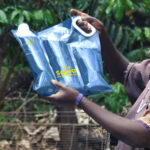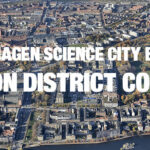Universities offer companies free counseling on materials research
Companies that develop products ranging from medicine, electronics and nanotech to packaging and foodstuffs now have the opportunity to strengthen their innovation and competitiveness. Researchers will prepare companies for the future by offering a sample of what’s to come with the new facilities in MAX IV, ESS and European XFEL.
MAX IV and European Spalation Source in Lund, Sweden will soon be ready for researchers to use. As will European XFEL in Hamburg. The new and improved technologies in the three international research facilities allow for in-depth examination of materials and produce enormous amounts of data. Data samples are sent from ESS in Lund to the Data Management and Software Centre in Copenhagen Science City, where they are processed and analyzed.
Researchers from the University of Copenhagen, Aarhus University and the Technical University of Denmark already analyze materials in-depth. But the new giant microscopes can enlarge material and structures in more detail.
The three universities now join forces on a project that bridges the gap between companies and research technology. Researchers from the universities offer Danish companies free tests of material samples using existing facilities. They also evaluate how the new facilities may benefit the company in the future.
The partnership LINX (Linking Industry to Neutrons and X-rays) is behind the initiative. The partnership matches the respective company with a relevant researcher. In case of an imperfect match, the company is handed on to a colleague more suited to help.
Many see universities and researchers located in the same city as competitors. That theory is disproved with the project that shows researchers as colleagues and not competitors. The same goes for the three universities that are not in direct competition, but rather cooperate to strengthen the future of materials research.




